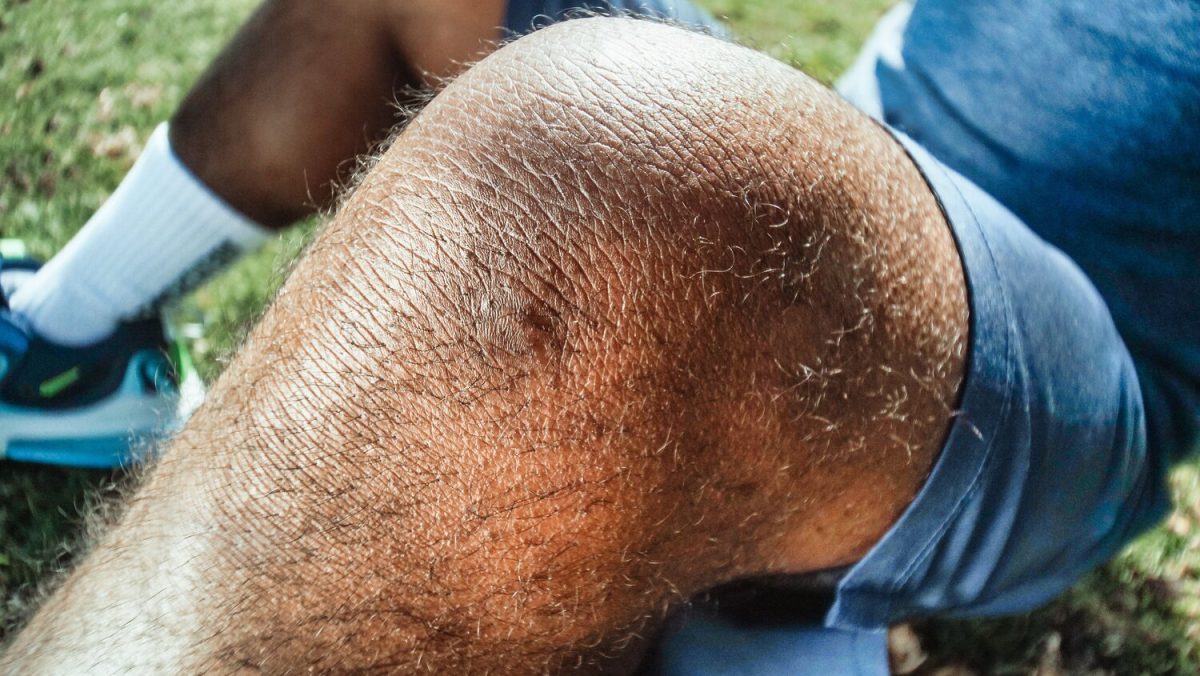Wouldn’t it be amazing if you could simply surgically remove or ‘cut out’ the cause of your knee pain? I think everyone, from doctors to patients, would love it if things were so simple. Unfortunately, they’re not.
By far one of the most common questions Sport Medicine Physicians and Orthopedic Surgeons at Group23 get from patients suffering from knee pain of any type is “can’t I just have surgery for this?”. Many of our patients are very active individuals and have likely had a friend, family member, teammate (or maybe even themselves) who has had a knee “scoped” or “cleaned out” with good success (return to activity, decreased pain). For this reason, it’s logical that they may think that arthroscopic knee surgery is exactly what they need to get back in the game so to speak. Unfortunately, the decision to proceed to surgery is not black and white. Many factors determine whether or not someone is a surgical candidate or whether their condition can be managed effectively using non-surgical treatments. Ultimately, the decision to proceed to surgery will be determined based on several considerations:
-
Is surgery indicated for the diagnosis? In other words, is there a surgical procedure that can fix the problem at hand.
-
Has the patient weighed the risks of surgery (risk of anesthetic, infection, damage to nerves, blood clots, no change in pain despite the surgery etc.) against the potential benefits of surgery and determined that the potential benefits outweigh the risks?
-
What role does surgery play in your personal health journey to help you reach your goals? Are there other pathways to reach your goals besides surgery?
-
What are the timelines involved? Access to elective surgery in Canada is slow (very slow). Recovery times can vary from weeks to years depending on surgery performed.
Let’s examine some of the key factors that determine whether or not surgery can help for your knee pain:
1. What is the diagnosis and what does research say about the role for surgery? There are some conditions that are clearly surgical: displaced fractures, complete tears of multiple ligaments in the knee which would render the knee unstable, recurrent dislocations of the kneecap despite physiotherapy and bracing, “loose bodies” or tears of the meniscus (shock absorbing cushions between the bones) which if torn significantly can become flipped over and “lock” the knee (can’t move it — think a bunched up carpet stuck behind a door making if unable to open/close). Research tends to support surgical management of these types of conditions. Thankfully, these injuries are rare. The far more common causes of knee pain which include diagnoses of degenerative meniscal tears/knee osteoarthritis, patellofemoral pain syndrome or “tendinopathy” are no longer managed with surgery as a 1st line treatment (see #4 below and links at end of blog) on surgery for knee osteoarthritis).
2. Although some of us hate to admit it, AGE is unfortunately a huge factor in determining whether you are a surgery candidate. Tears of the meniscus or anterior cruciate ligament (ACL) are very often managed surgically if you are 20 years old but would be managed non-surgically if you are 50 years old. This is because our choices of activities change as we get older. Most older patients can get back to doing the things they love WITHOUT needing a surgery, while most younger patients would not.
3. Have you thoroughly exhausted non-surgical treatments? Most of us like to take shortcuts whenever possible and naturally we conceptualize surgery as the quickest way to eliminating pain and getting back to the activities that we love. The only problem with this approach is that surgery is not without some risk, therefore, most surgeons in public health care system will want to be sure you have done everything you can to have gotten better short of doing surgery. At Group23 we teach our patients that one of the most important parts of your visit with the Orthopedic surgeon is when he or she asks you the question “What have you done to treat your knee pain so far?” If you answer “Nothing…. I’ve just been waiting a year to see you” they will very likely send you away for 6-12 months to try non-surgical management i.e. prove that you can’t reach your goals with aggressive non-operative treatments (physiotherapy, injections, bracing, weight-management etc.) and then we’ll talk about whether surgery is appropriate. We try to ensure that when a Group23 patient is asked this question by the surgeon, they blow them away with their answer. Group23 patients demonstrate to the surgeon that they have undertaken a comprehensive, progressive and aggressive non-operative treatment course but, despite all this, they have not reached their goals. Expect to hear the next words from the surgeon to be: “when would you like to come in for surgery?”
4. Understanding WHEN surgery is appropriate and WHAT KIND of surgery is required. This applies most commonly to KNEE OSTEOARTHRITIS (OA) and degenerative meniscal tearing. To keep it simple, there are 3 different types of surgeries which may be considered if you have knee OA. 1) Arthroscopic debridement (“Scoping the knee to clean it out”), 2) Arthroplasty (Joint replacement surgery – “knee replacement”) and 3) Osteotomies (“realignment of the bones”). Based on all the research in the past 40 years where are we at in 2021 with respect to best evidence?
-
Arthroscopy (scopes) are very rarely used in 2021 for knee OA or degenerative meniscal tears UNLESS you have a mechanical locking of the joint (see links to articles at end of blog for more information)
-
Arthroplasty (Knee replacements) are the “end-of-the line” treatment for knees with advanced osteoarthritis that have failed every non-operative treatment outlined in the G23 #RiseAbove Personal Health Journey – see www.group23.ca/riseabove )
These surgeries are typically very successful, but note that 1 in 5 patient will still have pain after getting a knee replacement.
At Group23, our purpose is to deliver positive healthcare experiences and empower individuals to #RiseAbove injury and get back to movement. Understanding your diagnosis (what we call “becoming an EXPERT in your condition”) is a critical part of every Group23 #RiseAbove health journey. Hopefully this article helps answer some of the questions many patients with knee pain have when it comes to deciding if surgery is appropriate for their condition. If you are suffering from pain and would like access to the sport medicine physicians, you can do so by SELF-REFERRAL click here.
Sources
https://www.health.harvard.edu/blog/knee-arthroscopy-should-this-common-knee-surgery-be-performed-less-often-2020042019507
http://blog.arthritis.org/news/doctors-patients-say-no-arthroscopy-arthritis/







 | Website Design Calgary
| Website Design Calgary